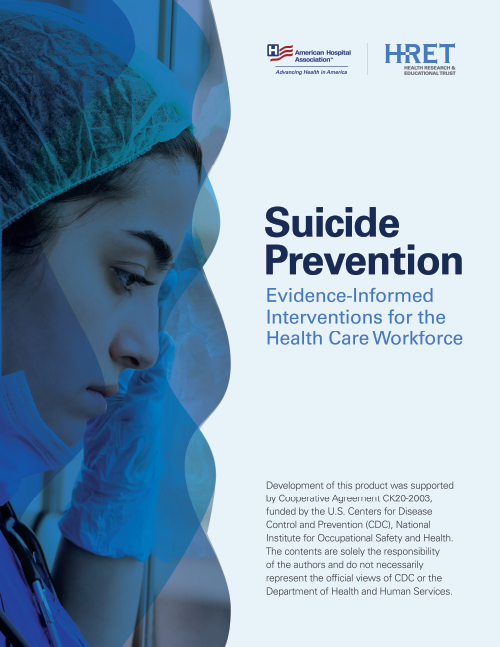
Carilion Clinic employs more than 13,200 employees who provide care for over 1 million people in over 250 locations across western Virginia. Prior to their work with the AHA, the organization collected data on staff utilization of and/or engagement in behavioral health resources and programs. Based on the results, they chose to focus on addressing limited access to behavioral health resources. Through their work with the AHA Suicide Prevention in the Healthcare Workforce Collaborative, they focused on improving the availability and accessibility of behavioral health resources for their workforce.
Carilion Clinic did not implement anything new over the course of the collaborative; instead, they chose to focus on a retrospective analysis of changes to date. Over the past three years they have worked to expand and implement various programs within their system to increase access to mental health support for their workforce. One of the updates they made was bringing on two EAP (Employee Assistance Program) consultants, placing them within the flagship hospital. Over time, these consultants have become the face of Carilion’s EAP. When they are not actively seeing clients, Chad and Katie round through the hospital, host tables at wellness fairs, provide staff presentations to deliver education on mental health, and partner closely with other members of the employee well-being team at Carilion. The goal of the analysis was to determine the effectiveness of these changes and to inform the future of these programs.
A big change that this organization’s team has noticed is the increasing mention of employees going to see “Chad” and “Katie” rather than “accessing the EAP.” They have found that putting a name and a trusted face within the hospital helps to destigmatize the utilization of these resources. In recent months, they have seen an increased willingness among their staff to seek support when they need it, and the EAP is an increasingly trusted source of support for employees. This support has extended beyond providing individual mental health support to providing support for leaders and teams within the organization. Since the beginning of their work with the collaborative there have been over 650 EAP referrals made.
As they work to continue to improve and develop behavioral health resources, Carilion Clinic has found the collaborative very beneficial, specifically in its ability to give a “boots on the ground understanding of how interventions and programs are working within other hospitals and health care systems,” they reported in their final assessment. Speaking about sentiment that has been echoed by their fellow participants, the team at Carilion noted that in the past they have only heard the highlights of successful programs; those stories lacked the logistics of how the teams were able to make things happen. It was helpful to hear about not only the successes, but the stumbles other organizations have made. Learning about other programs in a transparent way allows organizations like Carilion Clinic to find realistic resources that will benefit their workforce.
Moving forward, Carilion Clinic is working to onboard Stress First Aid as a system-wide training course that will be available to all employees. They are planning a phased roll out of this training starting in fall of 2023 through the spring of 2024.


